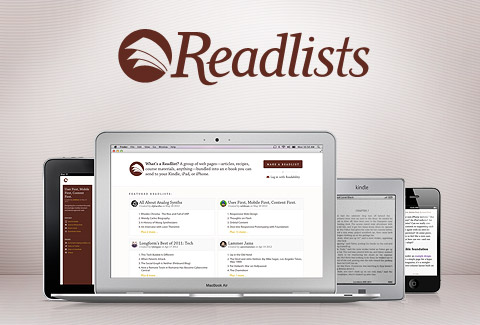Great Film Directors Stamps ⇒
{% blockquote -United States Postal Service http://beyondtheperf.com/stamp-releases/great-film-directors Beyond the Perf %} With these stamps, the U.S. Postal Service honors four great filmmakers who captured the many varieties of the American experience. These extraordinary directors — Frank Capra, John Ford, John Huston, and Billy Wilder — created some of the most iconic scenes in American cinema. They gave audiences an unforgettable (and in some cases, deeply personal) vision of life. {% endblockquote %}
These look pretty great. My favorite is the one of Michel Hazanavicius’ three favorite people:

Billy Wilder Stamp
(via /Film.)
Netflix's Doublespeak ⇒
Nathan Ingraham over at The Verge reports from the 2012 Cable Show where Ted Sarandos, Netflix’s Chief Content Officer, spoke on a panel alongside cable executives:
While Sarandos didn’t issue a firm denial, his response made it pretty clear that he didn’t believe Netflix was to blame for Nickelodeon’s troubles. He noted that the Netflix programming strategy “is mostly around high engagement, and we get there through personalization. And because of that, people’s tastes are so diverse that no specific network or no specific show has such high viewing concentration that you’d see that kind of cause and effect on ratings.” Still, he was quick to point out a counter-example that gives Netflix some credibility with the networks, saying that “in the gap between season four and season five [of Mad Men], we brought maybe a million new viewers to AMC for the new season.” He believes that Netflix played a role by giving viewers “a good opportunity, and a well-priced model and well-distributed model to catch up on the show.”
Oh, okay. There’s no way to track cause and effect, but Netflix is the reason Mad Men got a million new viewers this season. Sounds reasonable.
Richard Ziade Talks Readlists

Readlists on Many Devices
This week saw the launch of Readlists, a link gathering/curation service from Arc90, the folks behind Readability. On launch day I took a look at the service and found it to be a tool that doesn’t fulfill a need I have, but others have taken it for a spin and done some neat things.1
Just as when Readability launched, Readlists has been met with some harsh criticism about how it deals with authors’ content. I’m not quite ready to pass judgement either way, but I am curious. So I emailed Richard Ziade, Arc90’s lead strategist, again to ask him to clarify a few things about Readlists. Here is our full conversation.
How long has the idea of Readlists been around?
A few months but it’s popped in brainstorming conversations for probably longer than that.
What prompted Arc90 to create Readlists? Was there something in your personal workflow you were looking to fulfill?
There wasn’t really a particular use case. It just made a lot of sense to us and we figured people would value it. It’s so hard to find good hand-picked things these days. We figured we’d create a tool that just empowered everyone to lay down a topic, find great stuff and share it with others.
Who do you think is the main audience for Readlists?
Really anyone. It’s a great tool for specialized topics that people are passionate about. Want stories about horse racing? Want a collection of low-carb recipes? It’s a great way to collect and organize stuff—and most importantly—share it with others. We wanted it to be a zero-training tool because we want anyone could take advantage of it.
Why build Readlists as a separate app? Why not build it right into Readability as a feature?
There were a few reasons. We wanted the Readlists promise to stand on its own and not just be buried as a feature elsewhere. We also wanted to highlight to the world that Readability is truly a platform. Readlists could have theoretically been built by anyone without our help.
If one is going to share link lists, or “curate” content, aren’t there already a number of options out there? Blogs, newsletters, Tumblr, etc. What makes Readlists different?
I think it’s a slightly different case. You may not need a whole blog to share five great articles on evolution, for example. Also, you can get started instantly. You don’t even need to fill anything out. Just start dropping URLs and go.
Some are suggesting that Readlists crosses a line by making exported ebooks available to the public, since once they are downloaded, the work or link can’t be removed, even if the original author protests. I’m curious your response to this criticism and what your thought process was in building in the ebook feature. Is Readlists meant to be an ebook creation tool first, or is it a perk alongside the web-based list hosting?
We just wanted to people to have more flexible ways to read. People are reading more on their Kindles and in iBooks and such. We just wanted to build a bridge between the web and all these new devices. I suppose ebook and Kindle export is a feature alongside the primary power of Readlists: creating great lists of stuff worth reading on the web for others to discover.
I am going to have to press you on that last one. What do you say to an author who feels Readlists is repackaging content without their consent?
It’s a fair question.
You could make very logical and rational arguments that these services (and Instapaper and Pocket and Dropbox and Evernote, the list goes on) are infringing copyright. Today, you can save a web page into a public Dropbox folder and share that link with the entire world. So yeah, authors can step forward and say, “hey, stop that!”
I don’t think it’s a Readlists question. It’s a much bigger one. This is happening. But here’s the interesting thing: it’s happening because people want it and find value in it. That’s a good thing! In 48 hours, thousands of people have told us how awesome and useful this thing is. What that tells us is that there are opportunities ahead.
Now, we’re not sure how this plays out. Keep in mind, Readlists is an experiment. It’s free. We’d love to talk to publishers and writers about how we can tweak it so they can derive value from it. That’s ultimately what we want to do because the tools we build come out of a love for writing.
Things are changing dramatically and quickly and we’re not the only ones causing change. The glimmer of hope is that beyond all this change will be new opportunities that will benefit everyone.
-
For example, this compilation of Criterion Collection essays by CriterionCast co-host (and friend of the candler blog) Ryan Gallagher puts the service to use in a way I hadn’t considered originally. ↩︎
The Talk Show Episode #2 ⇒
New episode of The Talk Show is up over at Mule Radio Syndicate:
Special guest Adam Lisagor joins John Gruber to discuss the whole thing with the show leaving 5by5, spitball ideas Apple might add to iOS 6 and iCloud, and gush over the trailer for Paul Thomas Anderson’s upcoming film, The Master.
12 Baseball Feats That Only Happened Once ⇒
{% blockquote -Eddie Deezen http://www.neatorama.com/2012/05/24/12-baseball-feats-that-only-happened-once/ Neatorama %} 4. RICHIE ASHBURN HITS THE SAME LADY TWICE WITH TWO FOUL BALLS
On August 17, 1957, Richie Ashburn of the Philadelphia Phillies hit spectator Alice Roth with a foul ball, breaking her nose. As Alice was being carried off the field on a stretcher, Ashburn hit her with another foul ball, breaking a bone in her knee. {% endblockquote %}
Ahem, Hall of Famer Richie Ashburn. Glad the Phils made the list.
Facebook's Media Problem ⇒
{% blockquote -Michael Wolff http://www.technologyreview.com/web/40437/ “The Facebook Fallacy”, Technology Review %} Facebook has, in some yet-to-be-defined way, redefined something. Relationships? Media? Communications? Communities? Something big, anyway. {% endblockquote %}
I was in high school when the dot com bubble burst1 but even I feel the eerie parallels between, say, 1999 and today. As Wolff points out, Facebook is a company that no one fully understands yet. But they have users. A ton. Most humans with the Internet, in fact.
Anecdotally, most people I talk to are surprised to hear that Facebook even has ads at all. They just ignore them. Yet Facebook wants so badly to be an ad company. Uphill battle for a very old media concept.
(via Benjamin Brooks.)
-
Just like Mark Zuckerberg. ↩︎
Highland Public Beta ⇒
{% blockquote -John August http://johnaugust.com/2012/highland-for-all Highland for all %} Highland is still at heart a conversion utility, letting you move between Fountain, PDF and FDX files. But we realized in testing that users often need to make minor changes, and having to round-trip through another text editor was too much hassle. So we added a basic editor. It’s not nearly as feature-rich as true screenwriting apps, but it’s surprisingly capable.
You could write a whole screenplay in Highland. I wouldn’t recommend it, but you could. {% endblockquote %}
Downloaded. I suggest you go grab it as well.
J.K. Rowling's Pottermore Schools Publishing Industry ⇒
{% blockquote -Jeff John Roberts http://paidcontent.org/2012/05/23/harry-potters-publishing-wand-can-tame-amazon-pirates/ paidContent %} Redmayne also stated that Pottermore, which has been live for two months, has already received more than a billion pageviews.
[…]
Pottermore has also pulled off another seemingly magical feat by persuading Amazon to redirect all sales to its site. Redmayne said this is in part a reflection of publishers’ desire to associate themselves with strong brands. {% endblockquote %}
Oh, and the books come DRM free. Yes, the Harry Potter series is wildly popular, making it the exception to all rules. Still, this may be the direction things are headed, with authors exerting more control over their sales.
It makes you wonder why someone like Stephen King doesn’t sell his own digital books.
“This is not a camera blog” ⇒
Stu Maschwitz hasn’t been on the Internet for a little while, but he’s back now:
I do write a lot about cameras. I also write about screenwriting, post-production, and other filmmaking things. Sometimes I write about tasty beverages. This blog is not my work. It’s a reflection of my work. It’s me learning out loud.
Prolost is one of the best sites around. Period.
Dr. Drang on the ForkLift Sale ⇒
{% blockquote -Dr. Drang http://www.leancrew.com/all-this/2012/05/cheap/ Cheap %} The cost of software isn’t just what you pay for it; it’s also the time you spend learning how to use it and how to incorporate it into your workflows. {% endblockquote %}
Such a good post. I saw that ForkLift was on sale for $0.99, a ridiculous 97%1 off its usual $29.99 price tag, and had the same thought process as Dr. Drang. It’s only a buck, but I already own Transmit which appears to be almost identical. Why bother?
Worse, if I wanted to make the switch, I’d rather give BinaryNights the full price for their efforts, not help devalue their app by snatching it while it’s insanely cheap. I write on the Internet; I need a good FTP app and I don’t mind supporting great software.
I’ll bet the goal from the ForkLift team was to stay relevant in the face of the blitz of press for Coda 2. In reality they’re probably making a pittance off of people who don’t really want their app.
-
96.7%, dweebs. ↩︎